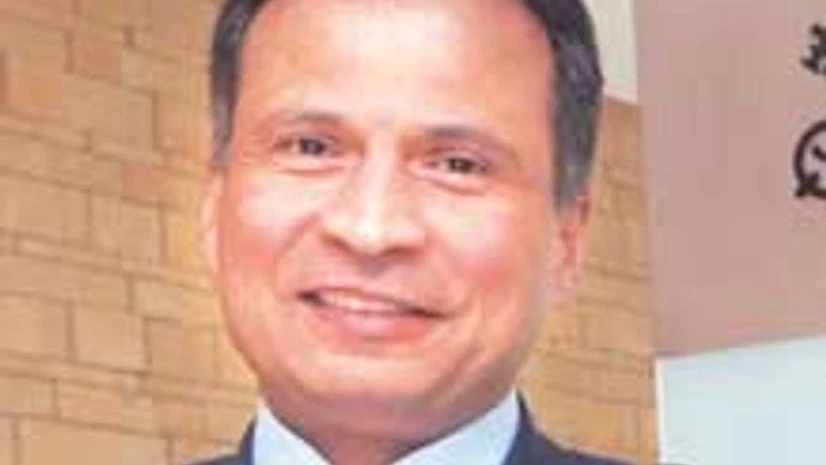Swiss lender UBS has decided to surrender its banking licence in India. Aashish Kamat, managing director and chief executive officer of the bank in India, in an interview with Manojit Saha, explains the reasons why it would re-engage with the country, if offered a specialised banking licence. Edited excerpts:
What prompted UBS to exit from the banking business in India?
The decision to exit the fixed income business was largely driven by the global financial crisis. After that happened, when UBS was bailed out by the Swiss government, and the new Basel-III rules that have come in, it has made dealing in certain fixed income products prohibitively expensive, in terms of return on capital.
Also Read
In 2012, UBS’ executive board had unveiled a restructuring programme called “Project Accelerate”. This is basically to reduce the balance sheet, increase the Tier-I ratio, reduce costs and, by 2015-16, return 50 per cent of the earnings as dividends to the shareholder.
Since we started deleveraging to conserve capital, we had to make choices where we want to be, in terms of geographies, markets and products. We started banking in India from 2009, when the global financial crisis was at its peak and then beginning to taper, so the timing was not perfect. In 2009, we brought $400 million of capital but were unable to deploy efficiently because of the global financial crisis and the new Basel rules.
Is doing banking in India difficult for foreign banks?
It is difficult because India, to some extent, has a credit-led culture, a balance sheet-led culture. If you look at the foreign banks which have done well in India, they have led with their balance sheet, they have extended credit. Second, Indian companies in general do not pay (fees), they see very little value from an equity underwriting prospective, they do not see the same value that some of the Western or Asian companies see bankers adding. On the M&A (mergers and acquisition) front, Indian companies will pay up, however reluctantly.
How long will it take to complete the process of surrendering the bank licence?
The process takes time. We have informed the Reserve Bank (RBI) that we would like to exit from banking. The process is, first you have to pay back the liabilities, which will be completed in January-March of 2014. Right now, we are in the process of unwinding the balance sheet. Once we do that, the regulator will come and do the audit, to make sure the balance sheet has been cleaned up and then they strike you off from the roster of commercial banks. That is likely to happen in the second or third quarter of the next calendar year.
RBI has released a discussion paper on differentiated banking licences. What are your views on this?
It is a very positive move. Till now, only a unified licence is available and banks are expected to do retail to wholesale banking to everything. It is very tough to do. For a bank like UBS, our core strength lies in wealth management and investment banking. So, allowing niche, differentiated banking will help those with expertise in certain areas. The Indian customer will also have a choice on where to go for specific services.
Will you be interested in applying for a differentiated banking licence, if it is allowed?
Yes. Right now, it is a part of a business from where UBS is exiting. India is still very important to us. If differentiated licensing comes in, and if we are able to do what we think we are good at, then we will certainly reconsider those options to re-engage in businesses in India.
Do you think the guidelines on wholly-owned subsidiaries will encourage foreign banks in converting their India branches into subsidiaries?
It will depend on individual foreign banks and what exactly is their strategy. There are lots of issues at play. First, how these banks view India from a long-term perspective. Second, which is very important, is the tax uncertainty. This needs to be cleared before they form subsidiaries. The other thing is, the norms focus on un-banked areas. Breaking even of un-banked area branches will take anywhere between 24 to 36 months or it might never break even, depending on where the branch is set up. So, there is a need for enough of other branches which are profitable, to meet the shortfall on the other side.
How has UBS performed in the M&A space this year?
We have been very active on M&A this year. I think we are one of the top four or five advisors this year from a league table perspective. We have been involved in the Piramal/Shriram Capital and Transport transaction, in Unilever’s acquisition of the stock of its India subsidiary, and the largest outbound sell side in the past couple of years.
We are in dialogue on a host of other M&A situations that are in advanced stages. I think India will be an attractive M&A destination for companies in the pharmaceutical, fast moving consumer goods, information technology and financial services sectors —anything where the acquiring company can participate in India's growing consumption story and where regulatory and government interference is minimal.
Will UBS continue its presence in India?
For UBS, India continues to be a core and a strategic market for its investment banking, equities and global family office businesses. The latter is where we service wealthy entrepreneurs, across their investment banking and wealth management needs. In China, state-owned enterprises dominate economic activity. In India, our (client) companies are run by individuals and families. Servicing them on a common platform and meeting all their needs, from corporate to wealth management activities, helps us understand and deliver the best and most efficient solution to these clients.

)
